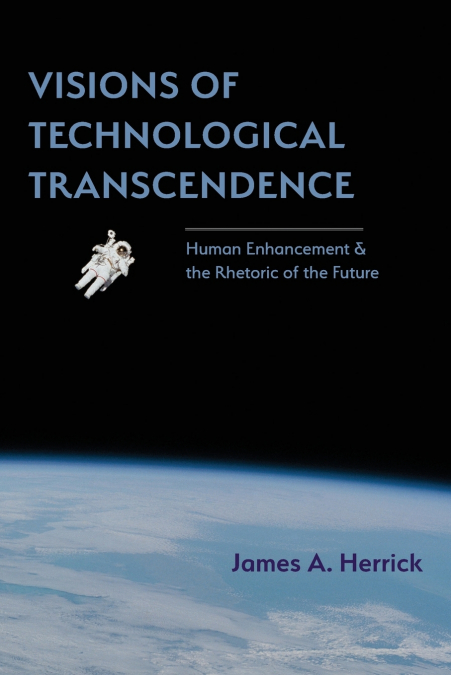
James A Herrick
The human enhancement movement--with Transhumanism as its best-known and most influential manifestation--promotes dramatic mental and physical augmentations to be realized by the radical and coordinated appropriation of biotechnology and computer science. Goals of Transhumanism include immortality, the merger of humans and machines, human-level artificial intelligence, and space colonization. The discourse of human enhancement is marked by the imminent emergence of a posthuman species and the culmination of human history in a technological upheaval referred to as the Singularity.Visions of Technological Transcendence approaches the rhetoric of human enhancement as a system of mythic narratives, each developing around a key tenet of enhancement thought. These strategic stories are treated as myths, providing 'imaginative patterns' for predicting technology’s trajectory, envisioning the technological redemption of the human race, aligning the mundane world with a transcendent, technological future, and attributing a sacred quality to scientific progress. Despite their scientific cast, these narratives rest on and promote a futuristic ideology originating in a range of non-scientific sources. Chapters explore the narratives of progress, technologically directed evolution, the person as information, the posthuman as supplanting Homo sapiens, technological immortality, limitless artificial intelligence, and space colonization as human destiny. Together, these narratives constitute a contemporary mythology envisioning a comprehensive and rhetorically powerful account of a technologically transformed posthuman future. About the Author James A. Herrick (PhD University of Wisconsin, MA University of California-Davis, is the Guy Vander Jagt Professor of Communication at Hope College in Holland, Michigan. He is the author of The Making of the New Spirituality, Scientific Mythologies, The Radical Rhetoric of the English Deists, Argumentation and The History and Theory of Rhetoric, and co-editor of After the Genome: A Language for our Biotechnological Future. Herrick writes and speaks about the history of rhetoric, new religious movements, and popular narratives about science and technology.